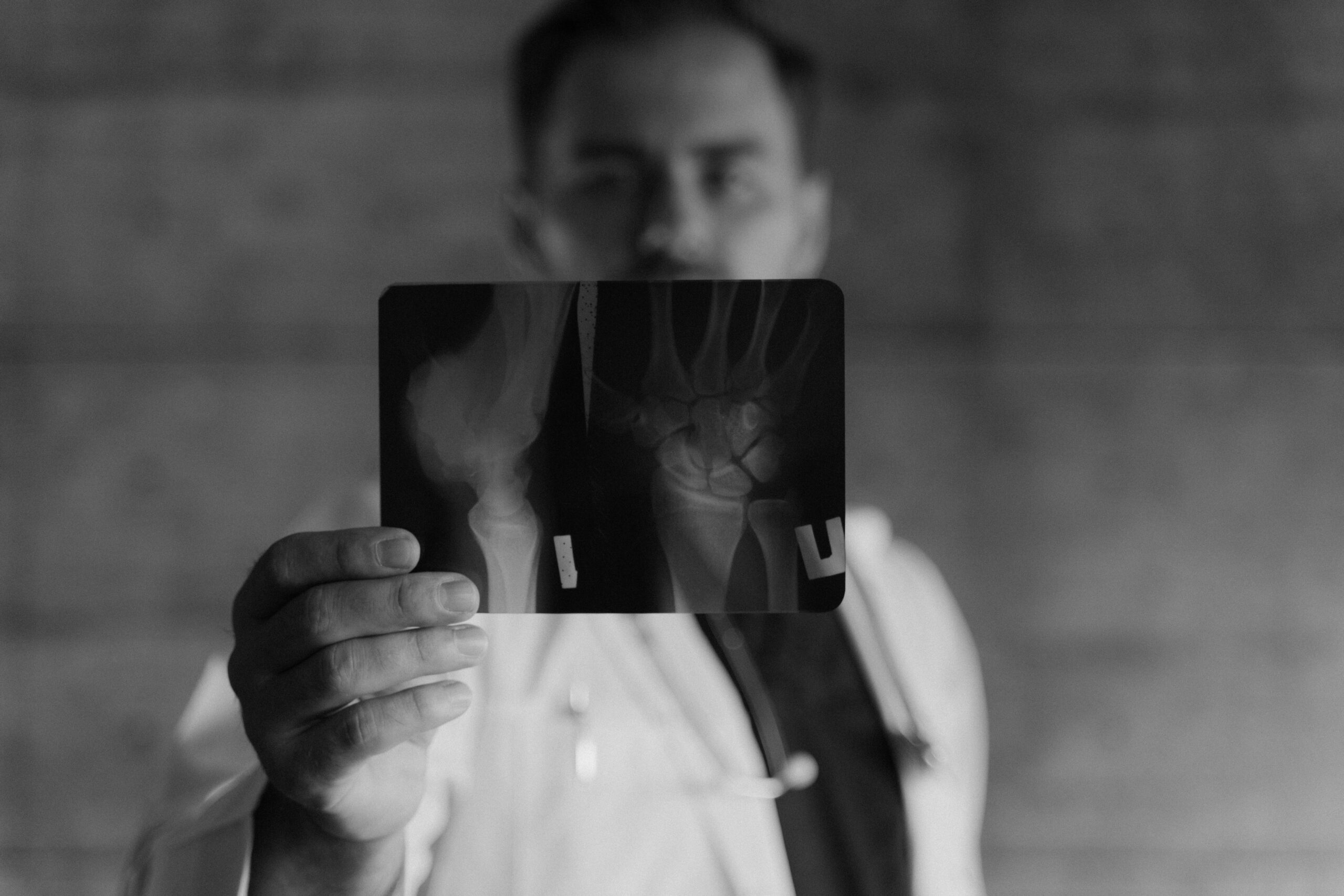CPT Codes for Anesthesia: Essential Insights for Accurate Medical Billing
CPT Codes for Anesthesia: Essential Insights for Accurate Medical Billing
When it comes to medical billing and coding, Current Procedural Terminology (CPT) codes play a crucial role in ensuring accurate documentation and appropriate reimbursement for healthcare services. Specifically, CPT codes for anesthesia are essential for detailing the anesthesia services provided during surgical and diagnostic procedures.
These codes help healthcare providers communicate effectively with insurance companies, ensuring they receive proper payment for their services. Accurate coding is vital not only for financial reasons but also for maintaining compliance with healthcare regulations and avoiding potential billing disputes.
Understanding these codes is fundamental for anyone involved in the medical billing process, as it directly impacts the efficiency and financial health of healthcare practices.
Anesthesia Procedure CPT Codes
Accurately understanding and utilizing Anesthesia Procedure CPT Codes is crucial for healthcare providers and medical billing professionals. These codes, which fall within the range of 00000-01999, are specifically designed to document and report the anesthesia services provided during surgical procedures.
The American Medical Association (AMA) outlines strict guidelines for these codes, ensuring consistency and accuracy in medical billing. Adhering to these guidelines is essential not only for compliance purposes but also to secure appropriate reimbursement from insurance companies.
Providers must meticulously select the HCPCS/CPT code that precisely describes the procedure performed, ensuring detailed and specific reporting to avoid billing discrepancies and optimize financial outcomes.
Types of Anesthesia CPT Code
1. General Anesthesia CPT Codes
General anesthesia involves rendering a patient completely unconscious for the duration of a surgical procedure. This type of anesthesia is commonly used for extensive surgeries where pain management and muscle relaxation are crucial.
The following CPT codes are used to document general anesthesia services for various procedures:
00100: Anesthesia for procedures on salivary glands
00102: Anesthesia for the repair of cleft lip
00103: Anesthesia for blepharoplasty
00104: Anesthesia for electroshock therapy
00120: Anesthesia for ear surgery
00124: Anesthesia for ear examination
00126: Anesthesia for tympanostomy
2. Local Anesthesia CPT Codes
Local anesthesia is used to numb a specific area of the body, allowing the patient to remain awake and alert during the procedure. This type of anesthesia is suitable for minor surgeries or procedures that do not require the patient to be unconscious.
The following CPT codes are relevant for documenting local anesthesia services:
00400: Anesthesia for procedures on the skin, external perineum, or trunk
00402: Anesthesia for reconstructive procedures on the breast
00404: Anesthesia for radical or modified radical procedures on the breast
00406: Anesthesia for radical or modified radical procedures on the breast with mammary node dissection
00410: Anesthesia for electrical conversion of arrhythmias
Anesthesia CPT Code Range
Anesthesia CPT codes are meticulously categorized to ensure precise documentation and reimbursement for various surgical and diagnostic procedures. These codes, known as anesthesia procedure codes or anesthesia billing codes, cover a broad range of anatomical regions and specific procedures.
This categorization helps streamline the billing process and ensures healthcare providers are adequately compensated for their services. Below is a detailed breakdown of the anesthesia CPT code ranges:
Head: 00100-00222
These codes cover anesthesia services for procedures on the head, including surgeries involving the brain, eyes, ears, nose, mouth, and facial bones. Accurate coding in this range is essential for documenting complex cranial surgeries and ensuring proper reimbursement for anesthesia providers.
Neck: 00300-00352
Anesthesia codes for the neck region include procedures such as thyroidectomy, laryngectomy, and other surgeries involving the throat and cervical spine. Precise coding in this category is vital for billing purposes and reflects the complexity of these delicate operations.
Thorax (Chest Wall and Shoulder Girdle): 00400-00474
This category encompasses anesthesia services for procedures on the chest wall, ribs, sternum, and shoulder girdle. These codes are crucial for documenting surgeries like mastectomies, chest wall reconstructions, and shoulder arthroscopies.
Intrathoracic: 00500-00580
Anesthesia codes in this range cover surgeries within the thoracic cavity, including procedures on the lungs, heart, esophagus, and other thoracic organs. Accurate coding is essential for high-risk surgeries such as open-heart surgery and lung resections.
Spine and Spinal Cord: 00600-00670
These codes apply to anesthesia services for spinal surgeries, including those on the vertebrae, spinal cord, and surrounding structures. Proper documentation in this range ensures correct billing for complex procedures like spinal fusions and laminectomies.
Upper Abdomen: 00700-00797
Anesthesia for upper abdominal surgeries involves procedures on organs such as the stomach, liver, pancreas, and gallbladder. Codes in this range are critical for billing purposes in surgeries like gastric bypass, liver resection, and cholecystectomy.
Lower Abdomen: 00800-00882
This range covers anesthesia services for lower abdominal surgeries, including those on the intestines, appendix, bladder, and reproductive organs. Accurate coding ensures appropriate billing for procedures such as appendectomies, hernia repairs, and hysterectomies.
Perineum: 00902-00952
Anesthesia codes for the perineum involve procedures on the pelvic floor and perineal structures, including rectal and anal surgeries. These codes are crucial for documenting and billing for surgeries like hemorrhoidectomies and perineal repairs.
Pelvis (except hip): 01112-01173
This category includes anesthesia services for pelvic surgeries, excluding the hip joint. It covers procedures on the pelvic bones and organs. Accurate coding in this range is vital for documenting surgeries such as pelvic fractures and pelvic organ prolapse repairs.
Upper Leg (except knee): 01200-01274
Anesthesia for procedures on the upper leg, excluding the knee, includes surgeries on the femur and surrounding muscles. These codes are essential for documenting and billing for operations like femoral fractures and muscle biopsies.
Knee and Popliteal Area: 01320-01444
This range covers anesthesia services for knee surgeries and procedures involving the popliteal area. Accurate coding is crucial for billing in surgeries such as total knee replacements and arthroscopic knee procedures.
Lower Leg (below knee, including ankle and foot): 01462-01522
Anesthesia codes in this range apply to surgeries on the lower leg, ankle, and foot. Proper documentation ensures correct billing for procedures like ankle fusions, foot reconstructions, and Achilles tendon repairs.
Shoulder and Axilla: 01610-01680
These codes cover anesthesia services for procedures on the shoulder and axillary region, including shoulder joint surgeries and axillary lymph node dissections. Accurate coding is vital for billing for these intricate procedures.
Upper Arm and Elbow: 01710-01782
These codes cover anesthesia services for procedures on the shoulder and axillary region, including shoulder joint surgeries and axillary lymph node dissections. Accurate coding is vital for billing for these intricate procedures.
Forearm, Wrist and Hand: 01810-01860
This category includes anesthesia services for procedures on the forearm, wrist, and hand. Accurate coding is essential for billing for surgeries such as carpal tunnel release and wrist arthroscopy.
Radiological Procedure: 01916-01942
Anesthesia codes for radiological procedures cover anesthesia services provided during diagnostic and therapeutic radiology. These codes ensure proper documentation and billing for procedures like interventional radiology and imaging-guided biopsies.
Burn Excisions or Debridement: 01951-01953
These codes cover anesthesia services for burn treatment, including excisions and debridement. Accurate coding is essential for billing for these critical and often complex procedures.
Obstetric: 01958-01969
Anesthesia codes for obstetric procedures include services provided during labor and delivery, including cesarean sections and epidural anesthesia. Proper documentation ensures correct billing for these vital maternity care services.
Other Procedure: 01990-01999
These codes cover anesthesia services for procedures on the shoulder and axillary region, including shoulder joint surgeries and axillary lymph node dissections. Accurate coding is vital for billing for these intricate procedures.
Anesthesia CPT Code Modifiers
Anesthesia CPT code modifiers are essential tools used to provide additional context and detail about a patient’s health status and the complexity of the anesthesia service provided. These modifiers help ensure accurate documentation and appropriate reimbursement by reflecting the patient’s condition and the anesthesia risk involved. By using these modifiers, healthcare providers can communicate more effectively with insurers and ensure that the complexity of the care provided is adequately captured in the billing process.
Here are the key anesthesia CPT code modifiers:
Documentation Guidelines for Anesthesia Medical Coding
Accurate documentation is essential for proper medical coding, particularly in the field of anesthesia, where precise reporting ensures appropriate reimbursement and compliance with regulatory requirements.
Healthcare providers must adhere to specific documentation guidelines to ensure the integrity and accuracy of anesthesia medical coding.
- Procedure Description: Document detailed descriptions of the anesthesia procedure, including type, duration, and any complications.
- Patient Information: Include demographic details, medical history, and current medications for context.
- Anesthesia Time: Record start and end times for accurate billing units.
- Procedure Complexity: Document factors affecting complexity, such as patient health and surgical invasiveness.
- Anesthesia Monitoring: Detail vital signs, medication administration, and adjustments for safety.
- Intraoperative Events: Document any changes in condition or interventions during surgery.
- Post-Anesthesia Care: Note recovery status, pain management, and postoperative complications.
- Guideline Compliance: Ensure adherence to regulatory and professional documentation standards.
Adhering to these documentation guidelines ensures that anesthesia medical coding accurately reflects the complexity and scope of the anesthesia services provided, facilitating proper reimbursement and quality patient care.
Closing Note
Understanding and adhering to CPT codes for anesthesia are vital components of effective medical billing and documentation in healthcare. Accurate coding ensures proper reimbursement, compliance with regulatory standards, and transparent communication between healthcare providers and insurers. By following documentation guidelines and utilizing anesthesia modifiers appropriately, healthcare professionals can optimize billing accuracy and support quality patient care.
Title: CPT Codes for Anesthesia: Complete Guide & Tips
URL: https://houseofoutsourcing.com/cpt-codes-for-anesthesia
Description: Explore CPT Codes for Anesthesia. Discover expert tips, guidelines, and modifiers for precise medical billing.
Table of Contents
- Understanding the Basics of Billing and Coding
- Implementing Accurate Documentation Practices
- Utilizing Advanced Software Solutions
- Training and Educating Staff
- Regular Audits and Reviews
- Staying Updated with Coding Standards and Regulations
- Enhancing Communication Between Departments
- Outsourcing Billing and Coding Services
- Bottom Line





